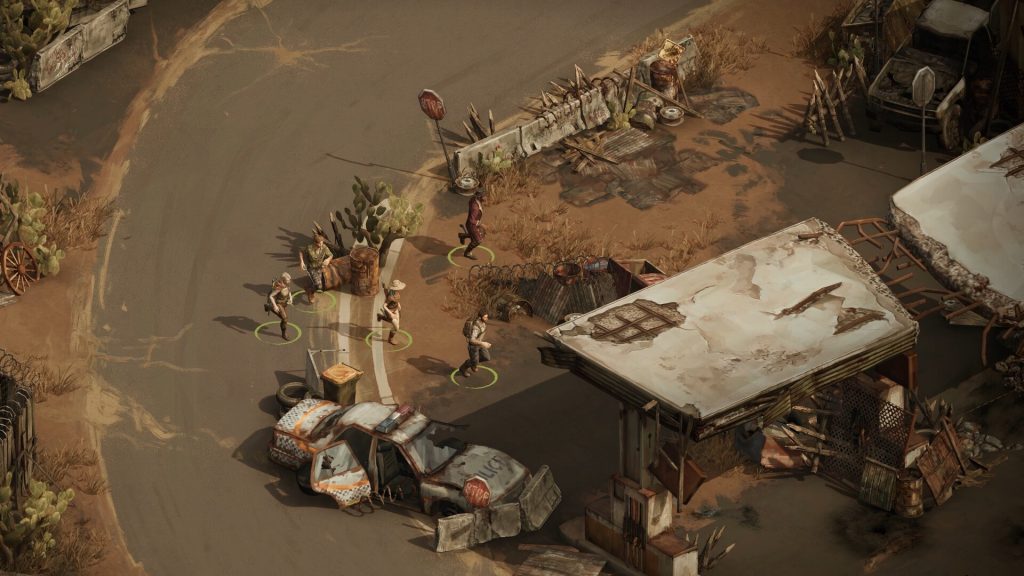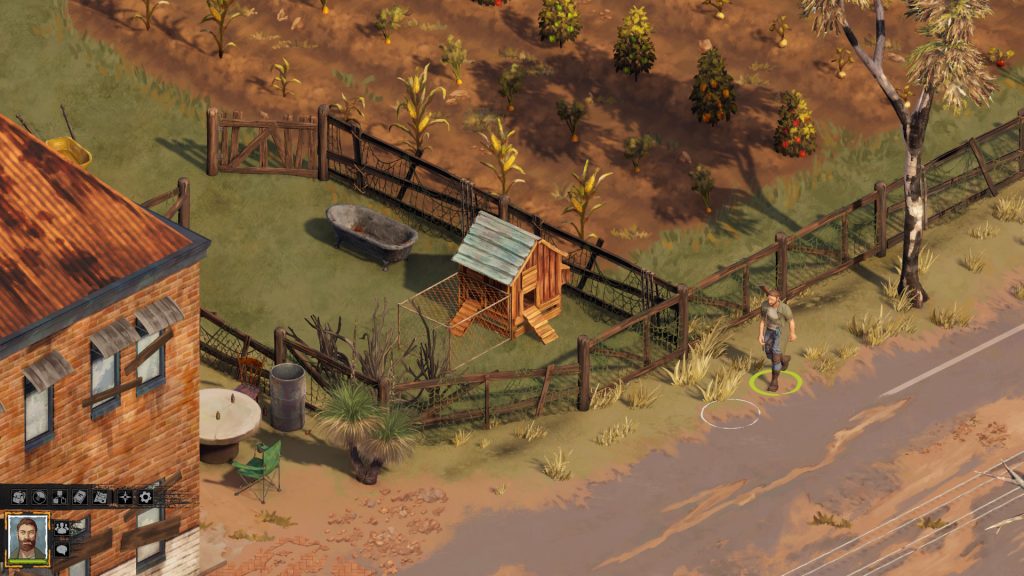
In a era where we have experiences like Baldur’s Gate 3 and ZA/UM’s Disco Elysium, it can be difficult for an indie studio to make a splash with a large-scale RPG of its own. Australian developer Drop Bear Bytes, however, took this as a challenge with its debut title Broken Roads. The RPG takes place in a post-apocalyptic setting and taps quite a bit into the studio’s heritage by making use of a post-apocalyptic Australia as its setting, one we don’t really get to see very often despite the continent’s presence in seminal post-apocalypse work in the Mad Max franchise.
Despite Broken Roads tapping into some classical role-playing game ideas like in its turn-based combat system and character morality system, the way the game uses these ideas reveal a much more modern take on the genre than one would expect. I will talk about exactly how the game modernizes these classical RPG concepts throughout the review, but it is important to note that the studio clearly loves the genre. Even the game’s Steam page cites the games from the opening sentence of this review as clear inspirations.
One of the most central features of Broken Roads is how it handles the player character’s morality. Rather than offering up simple choices between “good” and “evil”, where your options don’t really vary much between “save someone” and “kill that someone”, the game instead opts to use a more complex system that can be likened more to a compass. A circle divided into multiple quadrants represents your character’s choices.

"It is important to note that the studio clearly loves the genre."
It’s rare that you’ll ever find yourself going down a single path in this compass, and even the game makes it clear that your character’s viewpoint of the world will embody multiple quadrants of the moral compass. It certainly helps that dialogue choices that are going to influence your moral compass are clearly labeled, removing any ambiguity that might come about, and you’ll always have a handle on just how your character looks at the world.
After going through character creation and answering a few questions that set your character’s stats, abilities, and moral compass, nothing is really written in stone, and your character will definitely evolve as the game goes on. Broken Roads doesn’t really use a class system like other RPGs might, and instead things are left more freeform so that you can adapt to situations as they come up. While it might be helpful, for example, to start out as a hired gunman that is a highly-skilled marksman, you might also find yourself investing skill points into some of the more social skills, raising your charisma or even your situational awareness in the process. Similarly, even your moral compass is likely to change depending on the hard choices you’ll often find yourself making; this is the post-apocalypse after all. Resources are scarce and you’ll often be the one deciding who gets food and water, and who gets a bullet in their head for their trouble.
Even the combat in Broken Roads feels like a more modern take on the classic turn-based systems we’ve seen from RPGs with guns, like in Wasteland and other classic titles. While still hanging on to the action points system that you’d find in the genre, the game ditches the use of any hex or grid, instead allowing you to more freely decide where you’re going to go and who you’re going to attack. Just about every action you can take in a fight costs action points, from moving and shooting to throwing grenades, punching someone, or even reloading your gun.

"Even your moral compass is likely to change depending on the hard choices you’ll often find yourself making."
As a whole, however, the combat certainly feels rather simplistic when compared to heavyweights in the genre, and you’re not going to be able to mix and match elemental effects, for example. Most of the fighting is going to revolve around just moving, taking cover, shooting, and tossing the occasional grenade. Thankfully, the combat is incredibly fast-paced, and tends to get wrapped up incredibly quickly.
Aside from the moral compass, the other biggest feature of the game is undoubtedly its setting. A post-apocalyptic Australia is a rare setting to find in video games, after all, and Broken Roads definitely feels like it was made by people who not only live there but are also steeped in its culture. A simple but obvious example is in how slang is handled and how it features tips to learn them.
The story in Broken Roads isn’t too central to its core structure, and the game allows you quite a bit more freedom than you would expect in what order you might want to tackle your objectives. The story is pretty grand, and involves quite a few elements, ranging from political intrigue amongst the various factions and settlements you’ll meet, to more simplistic tasks like keeping settlements safe from some of the more unsavory elements of the post-apocalyptic world, like bandits. Things start off simple enough, with you being tasked with protecting an NPC as they travel between settlements.
"Aside from the moral compass, the other biggest feature of the game is undoubtedly its setting."
Interacting with various characters along the way, however, uncovers a much larger plot that Broken Roads doesn’t really feel like it’s equipped to handle well enough. The game’s central focus is always on what your character is doing, and as such, you don’t really get any other perspective on the narrative as it happens. Because of this, while the story is largely happening in the background, the strength of Broken Roads lies in some of the smaller vignettes it presents. For example, one of the first things you’ll come across is a child in shock, along with a woman looking over a seemingly fresh corpse of a man. The clearly traumatized child also has a gun, and it’s going to be up to you and your companions to figure out how you’ll handle this situation.
If I had to offer up a comparison, Broken Roads feels incredibly close in structure to Wasteland 2. While you do certainly have a clear goal in mind, you’re given quite a bit of freedom, and are in fact outright encouraged to explore the world around you and take on as many different side-quests and smaller tasks as you can as you get to learn more about the post-apocalyptic world. All of this is helped by the fact that the writing is quite good, and aside from a couple of characters, the voice acting is able to hold its own as well in presenting the game’s grim but beautiful world.
All in all, Broken Roads is a fantastic way for Drop Bear Bytes to make its debut. The game taps into classical RPGs for its vibes, but when it comes to gameplay mechanics, offers up a more modern take on various aspects like its morality system. Even the combat system, while feeling overly simplistic at times, still feels like it was streamlined in a good way; animations are quick and fights don’t take too long to get through. Instead, Broken Roads puts its best aspects, the choice mechanics and its beautifully realized setting, front and center.
This game was reviewed on PC.
Interesting setting that is seldom explored in games; Moral compass is a fantastic way to handle morality in RPGs; Great writing paired with decent voice acting.
The story playing out in the background makes the game feel aimless at times; the combat system might be too simplistic for some players.
















